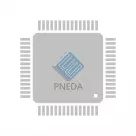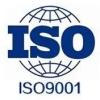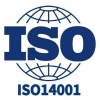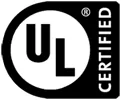Pioneers in semiconductor material technology innovation: photoresist and developer

In the modern electronics industry, the progress of semiconductor technology has greatly promoted the rapid development of information technology, communication, transportation and other fields. In many semiconductor materials, photoresist and developer, as the key materials, play a crucial role. They not only affect the manufacturing process of the chip, but also directly affect the performance and application range of the device. Therefore, a thorough understanding of the characteristics, applications and development trends of photoresist and developer is crucial to promote innovation in semiconductor material technology.
The basics of photoresist
Photoresist is a kind of light-sensitive material which is widely used in semiconductor manufacturing process. Its main function is to transfer the pattern on the mask to the substrate surface. For example, in the manufacture of CMOS (complementary metal oxide semiconductor) chips, lithography is an indispensable technology. Photoresist is usually divided into positive photoresist and negative photoresist two categories. Positive photoresist becomes more soluble after exposure, while negative photoresist becomes less soluble after exposure.
In terms of material composition, photoresist is mainly composed of polymer matrix, photosensitizer and solvent. The polymer matrix determines the mechanical strength and heat resistance of the photoresist, the photosensitizer is the key material to realize the photochemical reaction, and the solvent affects the coating and development process of the photoresist. In recent years, with the development of nanotechnology, the performance of photoresist has also been improved, and it can cope with the needs of smaller sizes of patterns.
The role of developer
The developer is an indispensable chemical solution in the lithography process, used to remove the unexposed part of the material in the photoresist in order to develop the desired pattern. The properties of the developer directly affect the resolution, edge clarity and process stability of the photoresist. Common developer solutions mainly include sodium hydroxide solution, ammonia solution, etc. These solvents can effectively remove unhardened photoresist and form high-precision profiles.
The choice of developer is usually based on the type of photoresist, the process parameters used, and the application needs of the final product. The high performance developer can improve the efficiency of the entire lithography process and reduce defects caused by residues generated during development.
Key technology: collaborative development of photoresist and developer
The collaborative development of photoresist and developer is the key to improve the performance of semiconductor manufacturing process. With the continuous reduction of chip size and the improvement of integration, the material technology of photoresist and developer also needs to evolve. For example, with the application of extreme ultraviolet (EUV) lithography, new photoresist materials need to have higher sensitivity and better chemical stability to adapt to the characteristics of EUV light sources. In this case, the development of new photoresist and developer has become an important task in the industry.
At the same time, the development of photoresist and developer not only relies on breakthroughs in material science, but also needs to be closely integrated with process engineering. For example, optimizing the coating process, improving the fluidity and chemical compatibility of the developer, etc., are important means to improve production efficiency and reduce defects.
Future direction of development
In the face of changing market demand, the research of photoresist and developer is also constantly advancing. In terms of materials, new polymer materials, nano-composite materials and bio-based materials have gradually become a research hotspot. These new materials can provide superior performance and play a greater potential in BZX84C3V6L chip manufacturing.
At the same time, the introduction of artificial intelligence technology has also opened a new world for the research and development of photoresist and developer. For example, through big data analysis and machine learning, the properties of new materials can be predicted more quickly, providing a scientific basis for material design. This data-driven approach not only improves the efficiency of research and development, but also reduces the risk of material development, which is an important trend of future semiconductor material technology innovation.
The expansion of the application field
The application of photoresist and developer is not limited to traditional integrated circuit manufacturing. With the development of emerging industries such as the Internet of Things, 5G communication, and artificial intelligence, the application of photoresist and developer in other fields is also increasing. For example, in the manufacture of MEMS (microelectromechanical systems) and optoelectronic devices, these materials also play an important role. The promotion of new applications puts forward higher requirements for the performance of photoresist and developer, and further promotes its continuous innovation and development.
With the rapid iteration of technology, photoresist and developer will continue to play an important role in the future development of the semiconductor industry. They are not only the building blocks of high-performance chips, but also the pioneers of technological innovation in semiconductor materials. For researchers and manufacturers in the industry, embracing technological progress and attaching importance to material innovation will help them to remain invincible in global competition.
Die Produkte, an denen Sie interessiert sein könnten
 |
CAR2548FPB-Z01A | AC/DC CONVERTER 48V 2500W | 5760 More on Order |
 |
CAR0812FPB-Z01B | AC/DC CONVERTER 12V 850W | 3294 More on Order |
 |
FLP0412FPMXXZ01A | FLP0412FPMXXZ01A 450W OPEN FRAME | 7326 More on Order |
 |
CLP0412FPXXXZ01A | AC/DC CONVERTER 12V 450W | 6636 More on Order |
 |
AVX012A0X3-SRZ | DC DC CONVERTER | 4212 More on Order |
 |
AXH010A0D9-SRZ | DC DC CONVERTER 2V 20W | 8334 More on Order |
 |
EQW010A0B641Z | DC DC CONVERTER 12V 120W | 8046 More on Order |
 |
JRW060A0F641-H | DC DC CONVERTER 3.3V 198W | 7884 More on Order |
 |
HC010A0F1-SZ | DC DC CONVERTER 3.3V 33W | 6804 More on Order |
 |
KNW015A0F41-SRZ | DC DC CONVERTER 3.3V 50W | 8442 More on Order |
 |
APTS006A0X-SRDZ | DC DC CONVERTER 0.6-5.5V 33W | 5346 More on Order |
 |
ATH025A0X3Z | DC DC CONVERTER 0.8-3.6V 90W | 2538 More on Order |
 |
NH050M-L | DC DC CONVERTER 1.5V 22W | 6048 More on Order |
 |
JW150H1 | DC DC CONVERTER 24V 150W | 7164 More on Order |
 |
JW050A | DC DC CONVERTER 5V 50W | 3762 More on Order |
 |
FW250H1 | DC DC CONVERTER 24V 250W | 3186 More on Order |
 |
EQW012A0A-S | DC DC CONVERTER 5V 60W | 6966 More on Order |
 |
AXA005A0X-SR | DC DC CONVERTER 0.8-5.5V 27W | 13200 More on Order |
 |
JRCW450R641-18Z | DC DC CONVERTER 32V 450W | 4914 More on Order |
 |
QBVW033A0B841Z | DC DC CONVERTER 12V 400W | 5274 More on Order |
 |
ESTW010A0A41-HZ | DC DC CONVERTER 5V 50W | 3636 More on Order |
 |
ATH006A0X-SRZ | DC DC CONVERTER 0.8-3.6V 21W | 2637 More on Order |
 |
PNVT003A0X3-SRZ | DC DC CONVERTER 0.45-5.5V | 12816 More on Order |
 |
SHHD005A0F41Z | DC DC CONVERTER 3.3V 15W | 21864 More on Order |









